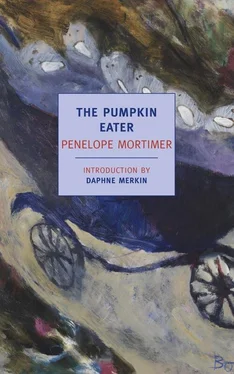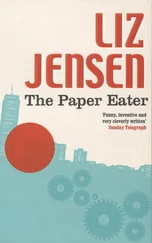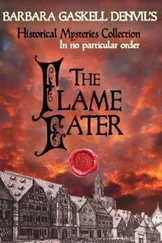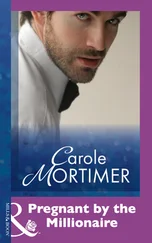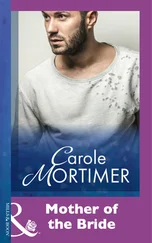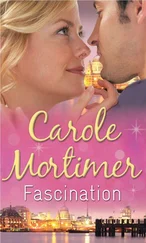The vicar, able at last to speak, bared a voice that sent the rooks cawing from the elms and made a cow, browsing the churchyard hedge, raise its head in gentle enquiry. “Earth to earth!” he bellowed, as though he were giving judgement. “Ashes to ashes! Dust to dust!..” But except he put in that exceeding weight of an eternal glory with his own hand into the other scale, we are weighed down, we are swallowed up … I felt diminished, lost, as unrelated to reality or purpose as a piece of cotton caught on a branch, a fragment of china in the grass. Who was I, to come to terms with evil? What arrogance. But it’s arrogance that keeps one alive: the belief that one can choose, that one’s choice is important, that one is responsible only to oneself. Without arrogance what would we be? I longed now to know what Jake’s father had really thought, had really felt and suffered behind that bland barricade. But it was too late. He had made quite certain that the one great statement of his life would be made after his death, involving him in nothing.
I touched Jake’s hand, but he didn’t turn, or look up. I wanted to ask him to forgive me, as I, at that moment only, forgave him. But it was impossible. I walked slowly away across the churchyard. When I turned at the gate, and looked back, I saw the five old men with their heads bowed, standing together, and the younger man standing alone, isolated, as he had chosen.
25
I went to the tower. There, in a cell of brick and glass, I sat and watched the wall of sky that rose ten feet away from my lookout window. Nothing else existed. Nobody else lived. A thick mist packed the surrounding valleys and rain, very fine rain, fell incessantly, to obscure the world further. The birds clattered, invisible; or sometimes drifted like burnt paper across the window, were carried up and away again, lying on their wings as though half asleep.
I seemed to be alone in the world. My past, at last, was over. I had given it up; set it free; sent it back where it belonged, to fit into other people’s lives. For one’s past grows to a point where it is longer than one’s future, and then it can become too great a burden. I had found, or had created, a neutrality between the past that I had lost and the future that I feared: an interminable hour which passed under my feet like the shadow of moving stairs, each stair recurring again and again, flattening to meet the next, a perfect circle of isolation captive between yesterday and tomorrow, between two illusions. Yesterday had never been. Tomorrow would never come. Darkness and light succeeded each other. The thick log in the grate became a heap of ash. Did this mean time continuing? I didn’t believe it. The high tower, rising like a lighthouse in a sea of mist, was inaccessible to reality. Even the birds flung themselves about as though there were no trees, no earth to settle on.
I had been married for twenty-four years, more than half my life. The children who were born during my first wedding night now walked heavily about, frowning, groping in worn handbags for small change; their clothes were beginning to grow old and many of them must have stopped falling in love. I found it hard to understand this, as I found it hard to grasp the idea of distance, or as I always found it hard to believe in the actuality of other people’s lives. For further proof, there were my own children, who until recently I had loved and cared for. Some were still growing up. Some merely grew thinner or fatter, but the size of their feet, the length of their arms, the circumference of their wrists and ankles would never change, except from disease. In them, in their memories and dreams. I existed firmly enough, however unrecognizable to myself. I stood over stoves, stirring food in a saucepan; I bent and picked things up from the floor; I stepped from side to side in the ritual of bed-making; I ran to the garden calling “Rain!” and stretched up for the clothes-pegs, cramming them into one fist and hurrying in, bedouined with washing. I shook thermometers, spooned out medicine; my face hung pinkly over the bath, suspended in steam, while I scrubbed at the free, tough flesh over a knee-cap, removing stains. I glowered, frightening, and then again sagged, sank, collapsed with the unendurable labours of a Monday. All this, and more, I saw myself perform in my children’s memories, but although I knew that at one time it was so, I could not recognize myself. My children could remember stories of my own childhood, although they found them boring; but I was severed even from those old, clear images which determine, as I had previously thought, everything. The images of my childhood had disappeared.
But on the hill, in the tower, there were no children to identify me or to regulate the chaos of time. It was very light, the glare of the mist more accurate than sunshine. I had taken the telephone receiver off its rest: it lay like an unformed foetus on the table, its cord twisted in thick knots. No postman, milkman, baker or grocer walked on the gravel. The sound of their footsteps, of their low gears grinding up the track, would in any case have been muffled, and I would not have known they were there until they rang the bell. But I was safe. I had ordered no milk or bread, no cornflakes, flour, butter, cocoa, cat food, assorted jellies, biscuits, bacon, honey, cake, salad cream, sugar, tea, currants, chutney, tomato ketchup, gelatine, cream of tartar, soap, detergents, salt, shoe polish, cheese, sausages, rice, baking powder, margarine, orange squash, blackcurrant syrup, tins of soup or beans or salmon, disinfectant or instant coffee. The women who came to clean, in their fitted coats and Wellington boots, with wedding rings embedded in fingers glazed and pudgy as crystallized fruit, sat home by their fires and cared for their families. Only the wild cats knew I was there. They lay upstairs, spread out on separate beds with their stomachs heaving and their feet crossed, sleeping as though they were tired.
From time to time I put another log on the fire. I was very aware of comfort. The heat in the tower made irregular, small noises: a sudden thud through the pipes, a creaking, the slow hiss as a log blistered. I sat down again by the window. A man serving a life sentence will never again have children. Capable, strong, alert to love, he stares from his tower and cannot prevent his body growing older. His body is an uninhabited house and the outside walls are the last to crumble. I was alone with myself, and we watched each other with steady, cold, inward eyes: the past and its consequence, the reality and its insubordinate dream.
I stayed in the tower for three days, until they came for me. Of course if I hadn’t known they would come for me, I might have gone somewhere else, I suppose that’s pretty obvious. I didn’t think of that. My only feeling was … I wanted to get away. Most people, I know, have this fantasy. One day they’ll walk out of the door, through the garden gate, and … then? Then what? The fact is, you don’t only need money, luggage, a ticket and a plan: you need a state of mind to think of all these things, and that state of mind is the one that keeps you at home, it’s not the state of mind you’re in when you’re running away. Of course there are people who take out their savings, arrange for ropes and ladders, leave notes on the mantelpiece, provide themselves with some elaborate disguise; but I imagine that they are convinced that there is some preferable future. I wasn’t convinced of this at all. I wanted to postpone the future; to stop things happening to me. I couldn’t have gone to a bank — anyway, they’d have been closed — or collected some clothes or looked at a map; if I could, there would have been no need to go. So I went to the tower, which I knew was empty. And having got there, I stayed there. I’d run out of petrol and so I couldn’t have left; that is, without a plan.
Читать дальше
